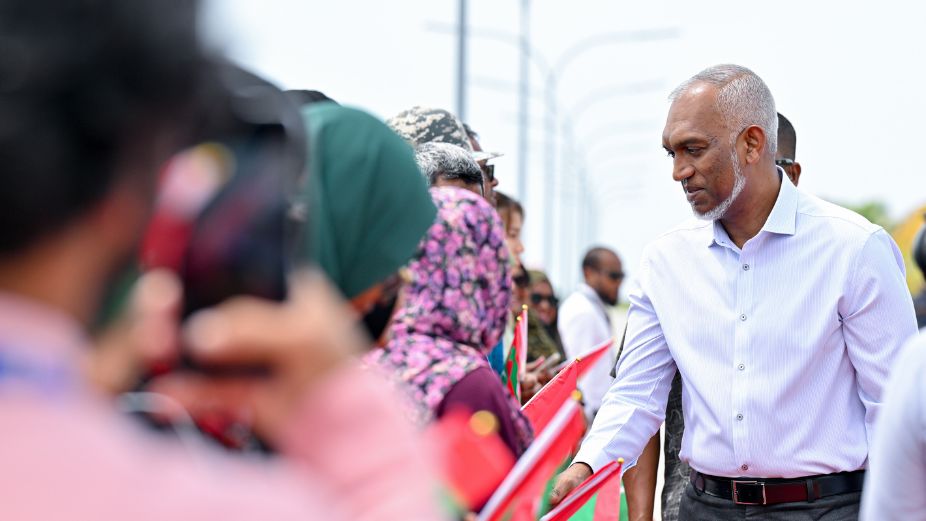
President Dr Mohamed Muizzu has emphasised the importance of adopting a citizen-centric approach to governance, pledging rapid development and prioritising the needs of local communities. Speaking to the residents of Innamaadhoo on Wednesday evening, he outlined his Administration’s plans to address pressing issues, including housing, healthcare, and youth development, under the 2025 state budget.
The President highlighted the urgent need for a sustainable solution to the housing crisis, confirming that a 50-unit housing project would commence as soon as the Innamaadhoo Council allocates the necessary land. Education and healthcare were also identified as key priorities, with assurances that these sectors would receive adequate resources to reduce service wait times and enhance quality.
Innamaadhoo’s specific challenges, such as harbour expansion, were acknowledged as critical to the island’s development. President Muizzu pledged to expedite this project and address other concerns, including erosion, water and sewerage networks, and road infrastructure. Youth-focused initiatives were also underscored as vital components of the Administration’s development agenda for 2025 and beyond.
The President concluded by expressing his intention to revisit the island to celebrate the completion of these projects, reinforcing his commitment to delivering tangible results.
The Concept of Citizen-Centric Governance
Citizen-centric governance is an approach that places the well-being, aspirations, and voices of citizens at the core of policymaking and implementation. It focuses on engaging communities to identify their needs, ensuring equitable access to resources, and delivering services efficiently and transparently.
This governance model emphasises inclusivity, encouraging local participation in decision-making to create development plans tailored to specific community priorities. It also requires robust accountability systems to track progress and build public trust. In a country like the Maldives, where decentralisation is enshrined in the constitution, such an approach aligns naturally with empowering local councils and communities.
Can President Muizzu Deliver on His Vision?
Achieving the citizen-centric vision outlined by President Muizzu will require significant effort and coordination. Decentralised decision-making must be strengthened, with local councils empowered to take a leading role in managing development projects. Transparent allocation of budgetary resources will be key to addressing local needs while ensuring fairness across the nation.
Effective implementation of projects, particularly large-scale initiatives like housing and harbour expansions, will demand streamlined coordination among ministries, councils, and contractors. Furthermore, addressing environmental challenges, such as erosion and sustainable water networks, will necessitate forward-looking plans that account for the Maldives’ vulnerability to climate change.
While the vision is ambitious, its success will hinge on the Administration’s ability to deliver on promises and maintain open lines of communication with the public. Balancing national priorities with the diverse needs of communities across the islands will be a challenge, but with adequate political will, strong oversight, and citizen engagement, the groundwork can be laid for transformative governance.












